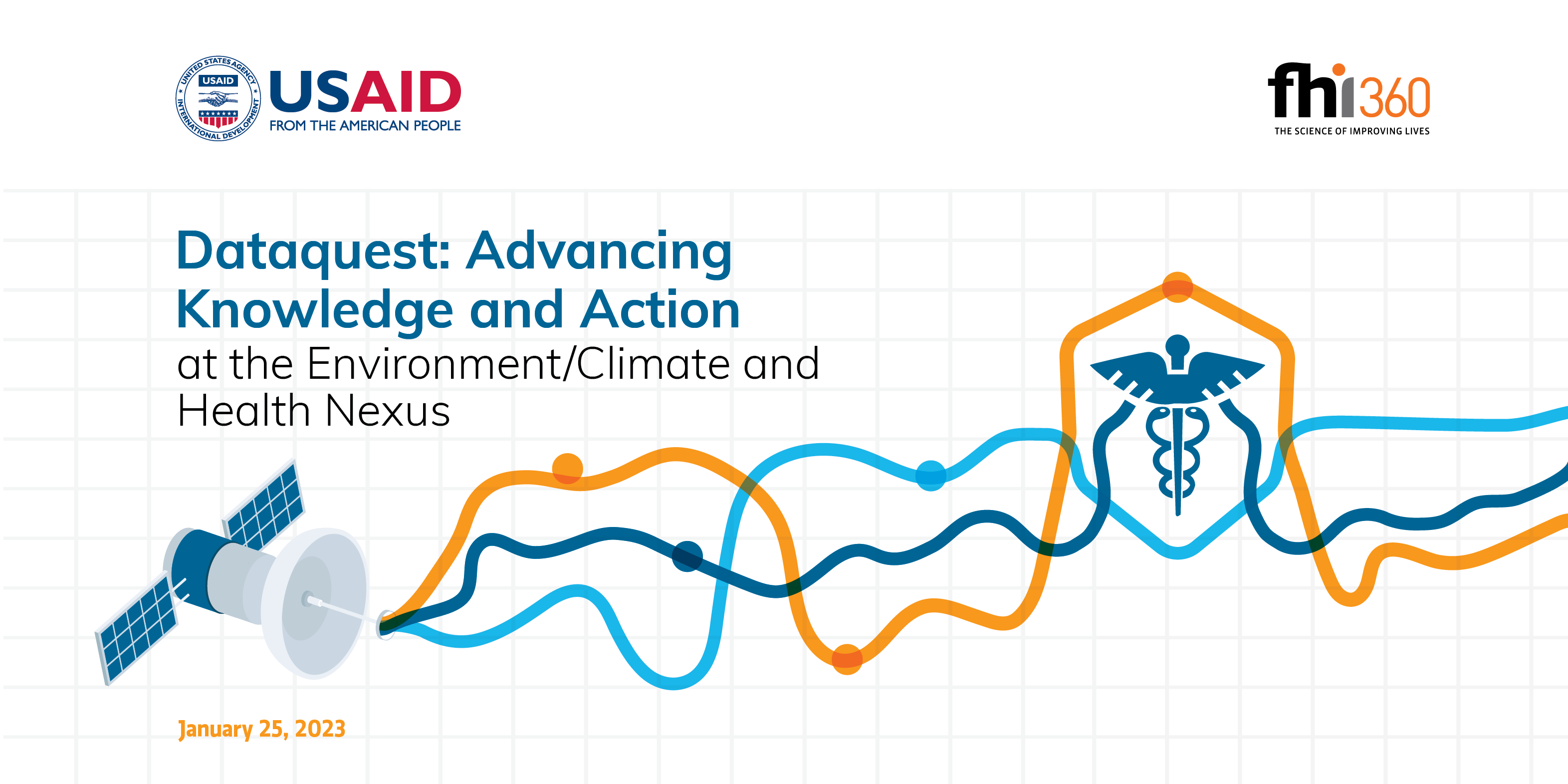Side Meetings
SMB301
Dataquest: Advancing Knowledge and Action at the Environment/Climate and Health Nexus
25
Jan
- FHI 360 and USAID Regional Development Mission for Asia

Climate change, biodiversity loss and pollution make up a triple planetary crisis that continues to put global wellbeing at risk. As the biggest global health threat of this century, climate change could reverse years of progress by increasing the pressure on health systems and by undermining opportunities to reduce poverty and improve the quality of human life. Addressing these three interconnected crises and their implications on human health requires swift collective action toward systemic change, as well as innovative solutions that create a resilient, inclusive and secure future for all.
The relationships between health, climate change, environment and biodiversity are extremely complex. Generating and using data is key to better understanding these relationships, and in turn to create and promote effective mitigation and adaptation strategies alongside national-, regional- and international-level policies.
Currently, several obstacles stand in the way of taking knowledge-backed actions to tackle the environment/climate-health nexus:
In addition to being a major health risk multiplier, climate and environmental issues transcend temporal and spatial boundaries—they can take hours or centuries to have an impact, and that impact can be localized to communities or touch entire continents—and available climate and environmental data is not sufficiently relevant nor robust to understand the health impacts of these climate and environmental issues.
Most human health issues and responses occur outside clinical care and biomedical research institutions, meaning that economic, social, cultural and environmental factors should be considered as key determinants of human health.
Because environmental determinants of health have traditionally fallen outside the realm of mainstream health and informatics, there is limited institutional capacity to address the environmental determinants of health outcomes.
Although the COVID-19 pandemic has led to a surge in interest in the biodiversity-health nexus, existing data tends to focus primarily on the transmission of zoonotic diseases. The health implications of land use and other dimensions of how environmental, social and behavioral science should inform health investment decisions remain neglected.
This roundtable discussion, co-chaired by the USAID Regional Development Mission for Asia (RDMA) and FHI 360, will feature experts from leading global and regional organizations including NASA, USAID, UNESCAP, the Asian Disaster Preparedness Center, and FHI 360, to:
Highlight a whole-system approach that enables collective and transdisciplinary actions to address the environment/climate-health nexus while focusing on how to make data-driven decisions and take knowledge-backed action.
Explore the need for relevant and appropriate data infrastructure and data literacy while identifying key knowledge gaps within the climate change-health nexus, biodiversity loss-health nexus, and pollution-health nexus.
Showcase field-tested innovations, models and tools that forecast and interpret data pertaining to the environment/climate-health nexus. This includes exploring the key elements of successful innovations, and how these approaches can be scaled to other geographies and challenges.
Discuss ways for organizations, policymakers and civil society to play active roles in turning knowledge into action within the environment/climate-health nexus.

